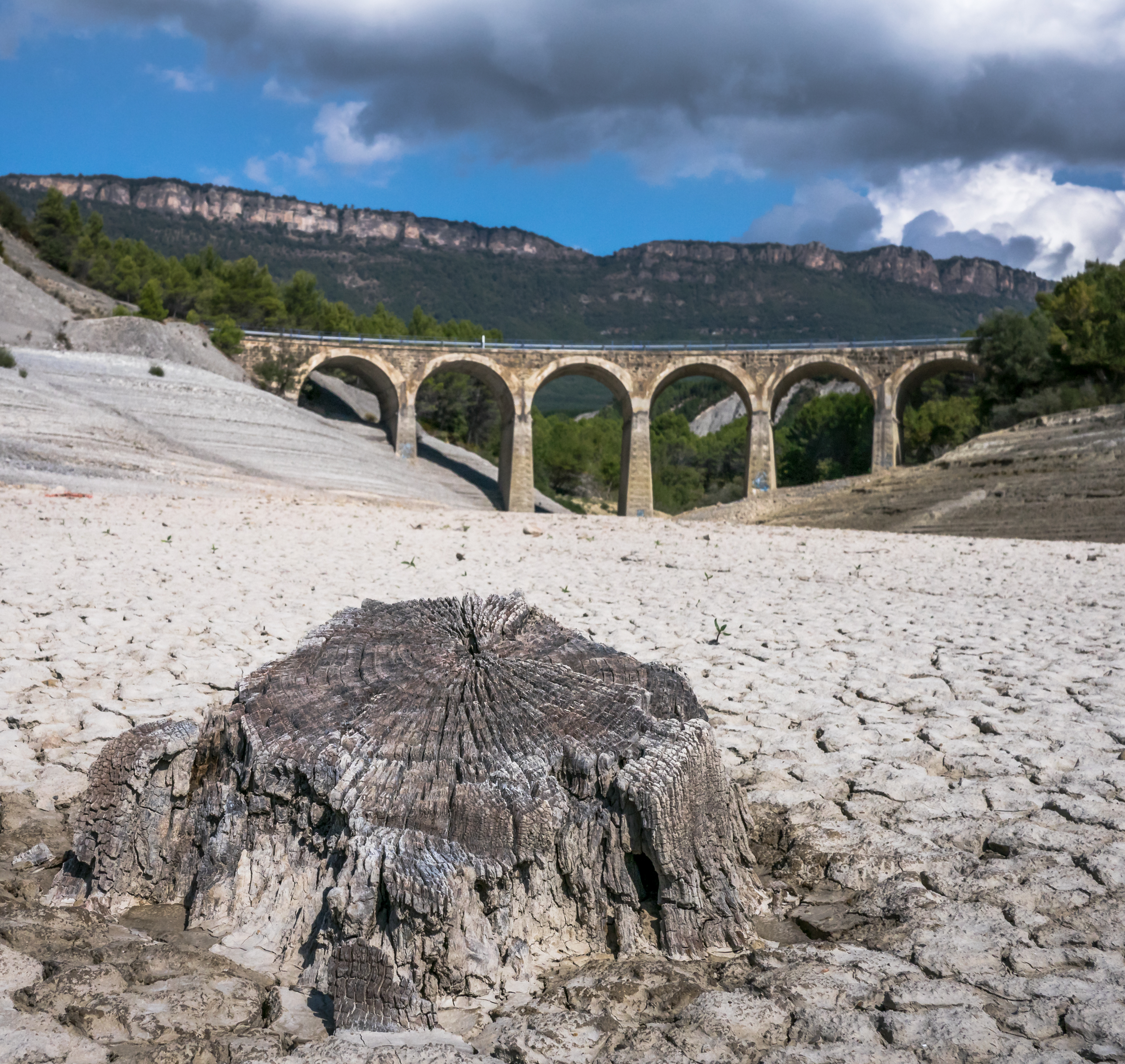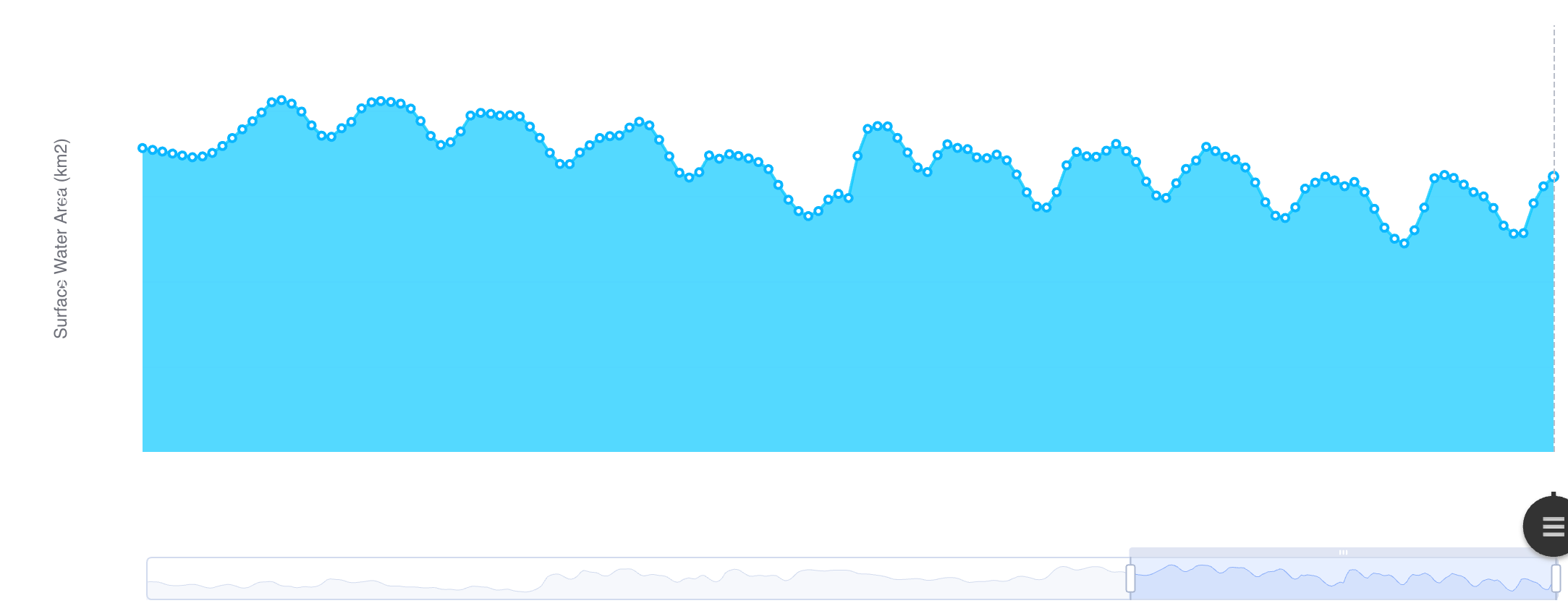European Reservoir Levels Reached Lowest Levels on Record in 2022
According to data from Global Water Watch, reservoirs in France, Germany, Greece, northern Italy, the Netherlands, Portugal, Spain, and the United Kingdom shrunk to unprecedented levels in 2022.

2022 was a year of unprecedented water stress across Europe as reservoir levels hit historic lows in a number of countries. According to data from Global Water Watch, reservoirs in France, Germany, Greece, northern Italy, the Netherlands, Portugal, Spain, and the United Kingdom shrunk to unprecedented levels last year due to drought and scorching temperatures and continue to be on a downward trend in 2023, raising concerns about the impacts of climate change and the availability of water for industrial, agricultural, and domestic use.
The first-of-its-kind analysis from Global Water Watch, a data platform powered by Google Earth Engine supported by Google.org and developed between Deltares, World Resources Institute (WRI), and WWF, is based on the surface water area of European reservoirs derived from satellite data. It shows that countries across the continent hit their lowest combined reservoir levels on record, and most are on track to match or exceed those lows by the end of this summer.
“Relentless heat waves have become a defining feature of European summers, with soaring temperatures and erratic rainfall, driven by climate change, putting immense pressure on water resources throughout the continent,” said Stuart Orr, WWF’s Global Freshwater Lead. “Like everywhere, communities across Europe are primarily feeling the force of climate change through water - from more extreme droughts and floods to erratic rainfall patterns, altered river flows and melting glaciers.”
“This analysis shows that more reservoirs are not the answer: Europe urgently needs to invest in healthy rivers, lakes and wetlands with nature-based solutions to increase natural water storage, mitigate the impacts of ever more extreme weather events, and build climate resilience,” added Orr.
Following last year’s historic lows, 2023 is already shaping up to be a year of continued water stress. The European Union warned recently that almost half of its member countries have slipped into a “severe” drought this summer, increasing fears of continued fires and risks to food production throughout the region.

Spain: Total Reservoir Surface Area, 2013 - Present
Spain: Total Reservoir Surface Area, 2013 - Present
According to data from Global Water Watch, this year Germany has already exceeded its record reservoir lows from 2022. Spain reached its lowest levels on record in 2022 and has been steadily trending downward for the last decade, with 2022 levels on average 23.6% lower than 2013. France’s historically low levels in 2022 were 19% below their average.
Agriculture, a crucial sector in the region's economy, is feeling the brunt of the water scarcity. Farmers are grappling with reduced water allocations for irrigation, leaving crops parched and livestock vulnerable to heat stress. Local governments have imposed water usage restrictions, and some farmers are being forced to abandon fields altogether, affecting food production and livelihoods.
Additionally, the ecological impacts of water scarcity, such as habitat loss and biodiversity decline, will have significant effects on not only ecosystems, but also the communities and industries that rely on them. Ecosystems that rely on ample healthy water sources, such as rivers, wetlands, and lakes, can experience degradation or complete collapse. This loss of biodiversity can disrupt food chains, diminish ecosystem resilience, and ultimately result in the loss of important species and ecological functions.
“Having access to this kind of reservoir data is an important part of the puzzle for both understanding the long term effects that climate change is having on our water resources and informing decision-making,” said Hessel Winsemius, Senior Hydrologist at Deltares. “Water issues aren’t going away and it’s plain to see in the data. We need a concerted effort among European countries to address these issues head on.”

